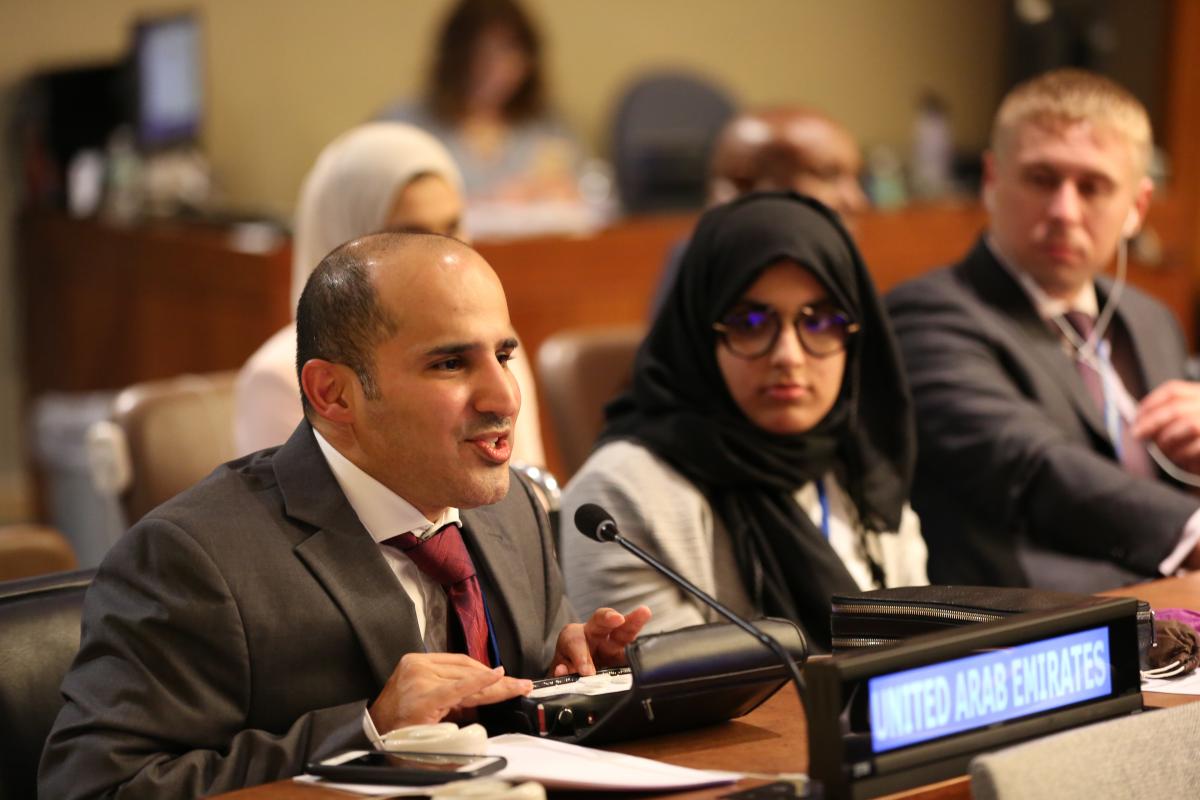NEW YORK — The UAE has renewed its commitment to the New Urban Agenda, which was adopted at the United Nations Conference on Housing and Sustainable Development in Quito last year. The framework advocates and promotes policies for the participation and inclusion of persons with disabilities (people of determination) in cities and urban settlements.

The reaffirmation was made in a statement delivered by Dr. Ahmed Abdullah Humaid Al-Omran, Chairman of the Advisory Council of Dubai Executive Council, in the general discussion of the tenth session of the Conference Of the States Parties to the Convention on the Rights of Persons with Disabilities, entitled, “Second Decade of the Convention on the Rights of Persons with Disabilities: participation and full inclusion of persons with disabilities and their representative organizations in the implementation process of the CRPD”.
In his statement, Dr. Al-Omran said that the UAE is committed to implementing current international frameworks, as well as taking the necessary steps and measures at national and international levels on this subject.
Dr. Al-Omran also reviewed the UAE’s significant advances in the participation of persons with disabilities in all national sectors. In April 2016, the UAE’s Vice President, Prime Minister, and Ruler of Dubai, His Highness Sheikh Mohammed bin Rashid Al Maktoum, announced that persons with disabilities be referred to as “people of determination” in recognition of the strong will and determination which characterises the community, including their contributions to society. The announcement coincided with His Highness’s launch of the National Policy for the Empowerment of Persons with Disabilities, which centres on six key pillars: health and rehabilitation, education, vocational training and employment, accessibility, social security and family empowerment, and public life.
Dr. Al-Omran stressed that the policies of empowerment and inclusion of persons with disabilities in UAE society are an integral part of the national strategies of the UAE, to create a barrier-free based society, and a better quality of life for all citizens, regardless of disabilities. Current policies include UAE Vision 2021, Abu Dhabi Economic Vision 2030, and Dubai Strategic Plan 2021.
He also referred to an electronic database established by the Ministry of Community Development for persons with disabilities in the UAE, which will contribute to developing a roadmap to further the implementation of the policy of empowerment and a better inclusion of people of determination in the coming years.
Dr. Al-Omran also reiterated the UAE’s attention to gender perspective with regard to persons with disabilities, noting its inclusion in the national strategy on the empowerment and leadership of women in the UAE for 2015-2021, launched by Her Highness Sheikha Fatima bint Mubarak, which ensures protection, prevention, and a supportive environment for women and girls with disabilities.
Dr. Al-Omran said that stakeholders, including the General Women’s Union, the Higher Council for Maternal and Child Welfare, and the Ministry of Community Development, have conducted several studies on the situation of women and girls with disabilities and made important recommendations that identify measures needed to empower women and girls with disabilities in all fields.
Dr. Al-Omran highlighted other endeavours promoted by the UAE government to develop policies and regulations to empower persons with disabilities and their families and to facilitate their social inclusion. He cited Dubai’s new Code of Global Design, which ensures accessibility to all buildings, facilities, and services in Dubai by all persons, as well as the Dubai Community Initiative, “My Community… A City for Everyone”, that aims to transform Dubai into a city friendly to persons with disabilities by 2020.
Dr. Ahmed Al-Omran concluded his statement by stressing that integrated efforts to serve persons with disabilities by federal and local government entities are part of the UAE’s sustainable model as one of the most friendly countries to people with disabilities in the world.
The UAE delegation to the Conference of State Parties to the CRPD also consists of Reem Mohamed AbdulJalil Al Fahim, Chief Executive Officer of the SEDRA Foundation, Dr. Salem Alshafei, Director of Policies and Programmes, Rights of Persons with Disabilities at the General Secretariat of Executive Council of Dubai, Kholoud Abdul Rahim, Director of the Centre for Horse Riding Therapy – Zayed Higher Organisation for Humanitarian Care and Special Needs, and Fatima Mohammed Yousuf Al Jassim and Khadija Mohammed Yousuf Yousuf, Researchers at the Community Development Authority – Research and Policy Department.
